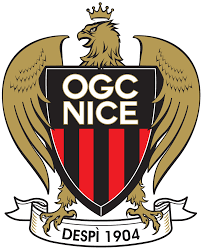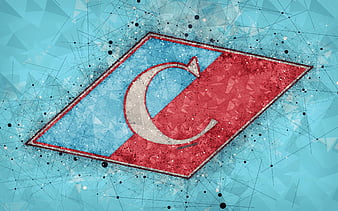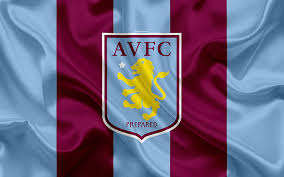
FC Nice
FC Nice, officially known as OGC Nice (Olympique Gymnaste Club Nice), stands as one of the most respected football clubs in France. Based in the vibrant city of Nice on the French Riviera, the club has become a symbol of resilience, tradition, and modern ambition in Ligue 1. With a history that spans over a century, FC Nice has built a loyal fan base, developed a competitive squad, and positioned itself as a contender both domestically and in European competitions 789bet.
This article provides a detailed look at FC Nice’s history, achievements, notable players, stadium, and long-term vision, optimized to highlight its relevance in global football today.
Origins and Historical Background
Founded in 1904, FC Nice started as a multi-sports club under the name Gymnaste Club de Nice. The football department grew quickly, fueled by the growing passion for the sport in the French Riviera. During the early years, the team competed regionally, but it wasn’t until the post-war era that FC Nice established itself as a powerhouse in French football.
The club’s golden age came during the 1950s, when it secured multiple Ligue 1 titles and Coupe de France trophies. This era remains one of the most celebrated chapters in the club’s history, as Nice rose to national prominence and cultivated its reputation as a resilient, stylish side.
Domestic Success in French Football
FC Nice has enjoyed significant success in French competitions. The club has four Ligue 1 championships (1951, 1952, 1956, 1959), making it one of the most decorated teams outside of Paris and Marseille. In addition, the team has lifted the Coupe de France three times (1952, 1954, 1997), adding further prestige to its trophy cabinet.
What makes FC Nice unique is its ability to reinvent itself across generations. Even during difficult financial periods or relegations, the club consistently bounced back, often relying on strong youth development and smart recruitment to rebuild competitiveness.
European Ambitions
Although FC Nice has not yet achieved the same success in Europe as some of its French rivals, the club has participated in the UEFA Champions League, the Europa League, and the Europa Conference League. These appearances highlight its ambition to compete at the highest level.
European matches have allowed FC Nice to showcase its talent against international opposition and expand its reputation beyond French borders. The long-term goal remains clear: to cement a permanent place in European competitions while aiming for deeper runs in knockout stages.
Allianz Riviera: The Home of FC Nice
The club’s home ground, the Allianz Riviera Stadium, is a state-of-the-art venue located in Nice. Opened in 2013, it holds over 35,000 spectators and offers one of the most modern fan experiences in Ligue 1.
More than just a football arena, Allianz Riviera reflects the club’s ambitions. Its advanced design focuses on sustainability, fan comfort, and atmosphere, turning every home match into a spectacular event. The stadium also hosted games during UEFA Euro 2016, cementing its reputation as one of France’s premier football venues.
Iconic Players and Legends
Throughout its history, FC Nice has been home to many legendary players who left an indelible mark on French football. Some of the most notable names include:
-
Just Fontaine – The French striker, famous for scoring 13 goals in a single World Cup (1958), played a key role in Nice’s attacking strength.
-
Victor Nurenberg – A talented forward whose contributions were crucial during the 1950s glory years.
-
Claude Makélélé – Although better known for his career at Real Madrid and Chelsea, Makélélé started his professional journey at Nice.
-
Mario Balotelli – The Italian forward brought international spotlight to the club in recent years, scoring important goals and captivating fans.
These players represent the mix of tradition and international flair that defines FC Nice.
Modern Squad and Philosophy
Today, FC Nice embraces a philosophy that balances youth development with experienced international signings. The club’s academy is highly respected, producing talented players who often rise to Ligue 1 prominence or move on to major European clubs.
In recent years, investments from the INEOS group have further strengthened the club’s ambitions. Backed by financial stability, FC Nice has been able to recruit quality players, improve infrastructure, and pursue a long-term project aimed at consistent European qualification.
Playing Style and Identity
FC Nice is recognized for a footballing identity rooted in attacking creativity and technical skill. The club favors dynamic, possession-based play, supported by a passionate fan culture at the Allianz Riviera.
Nice’s Mediterranean spirit is reflected in its style of play: bold, expressive, and full of energy. This identity resonates with fans who see the club as not just a team, but a representation of the Riviera’s culture and pride.
Rivalries and Fan Culture
One of the most heated rivalries in French football is the Derby de la Côte d’Azur between FC Nice and AS Monaco. Matches between the two sides are fiercely contested, attracting significant attention across the league.
The club’s supporters, known as Les Aiglons (The Eaglets), are among the most passionate in Ligue 1. The vibrant atmosphere at the Allianz Riviera, combined with organized ultras’ support, ensures every home game feels electric.
The Future of FC Nice
Looking ahead, FC Nice aims to re-establish itself as a consistent top-four team in Ligue 1 while making deeper runs in European competitions. With financial backing, a modern stadium, and a talented squad, the club is well-positioned to achieve these goals.
The emphasis remains on blending tradition with modern ambition—maintaining the proud legacy of the 1950s while building a sustainable model for long-term success.
Conclusion
FC Nice is more than just a football club; it is a historic institution representing the spirit of the French Riviera. From its golden age in the 1950s to its modern ambitions under INEOS ownership, the club continues to inspire fans locally and internationally. With strong youth development, a modern stadium, and a passionate fan base, FC Nice stands as one of the most exciting projects in French football today.
As the club looks toward the future, its legacy as a proud and resilient team ensures that FC Nice will remain an essential part of Ligue 1’s competitive landscape for years to come.




